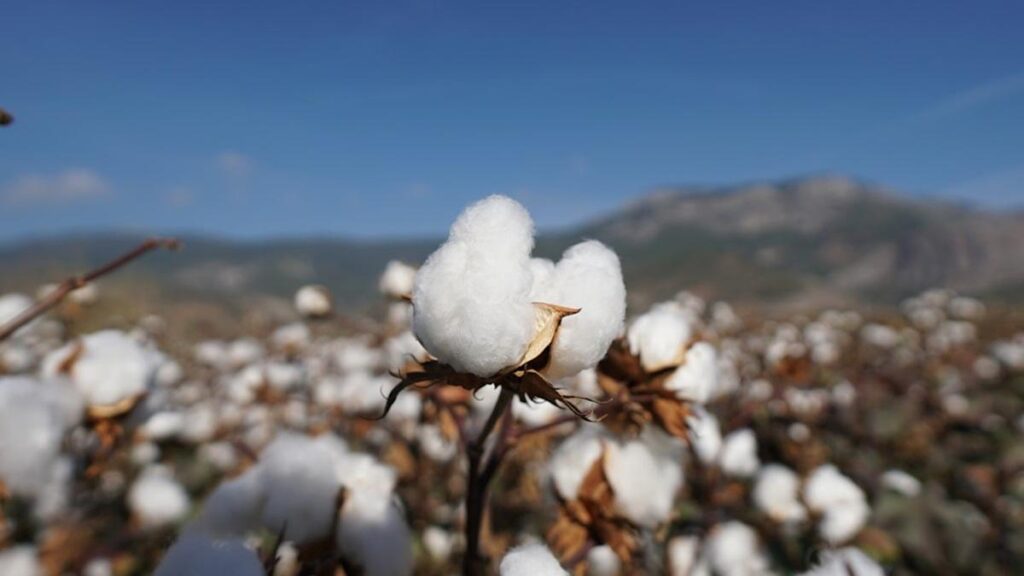The OCA, which collaborates with more than 100,000 Indian farmers, commissioned climate solutions provider South Pole to conduct the research.
The analysis draws on verified data from more than 18,000 farmers spanning three growth periods from 2020 to 2023, within varied irrigation conditions: rain-fed, intensive irrigation, and a mix of both.
The research aims to develop environmental profiles for raw cotton derived from seed cotton grown by participants in OCA’s agricultural programme in India. It examines the variations in irrigation and farming methods, leading to distinct environmental profiles across 15 specific supply regions within India, spanning three separate growth cycles.
The study covers five Indian states, namely Madhya Pradesh, Maharashtra, Odisha, Gujarat, and Telangana.
OCA executive director Bart Vollaard said: “OCA’s first regional LCA doesn’t only provide unique local insights into the environmental benefits of organic cotton for our sector, it also helps us identify how to deepen the impact of our work and improve OCA’s own data systems so we can deliver increasingly accurate LCAs in the future – showcasing the positive impact delivered by the fantastic work of the farmers in our programme.”
The OCA’s LCA aimed to establish a reliable baseline for cradle-to-ginning-gate evaluations, support verifiable environmental claims, and aid in Scope 3 greenhouse gas (GHG) reporting for associated brands. Additionally, the OCA sought to refine its data collection and management processes for future assessments and monitoring.
OCA’s India organic cotton study outcomes
The study’s findings suggest organic cotton farming has a smaller environmental footprint in several impact categories such as climate change potential, water consumption, acidification, and eutrophication. More specifically it shows:
• Emissions directly from fields are identified as significant contributors to climate change effects, acidification, and eutrophication. For instance, these emissions account for between 45% to 99% (averaging at 88%) of the impact across most categories (ten out of 16) within the Control – Irrigated group
• The use of fertilisers — both synthetic and natural — is a determining factor in the environmental impact of cotton production.
• Water use impacts differ greatly depending on irrigation practices with rain-fed systems showing the least impact.
South Pole environmental impact accounting LCA lead Caroline Peyer said: “At South Pole we are proud to partner with OCA on this innovative study offering an extensive, farm-level dataset, providing valuable insights into the environmental impacts of different farming systems, underlining the benefits of organic cotton cultivation. The large sample size, combined with third-party verification, enhances the robustness and reliability of the results – a step forward in empowering businesses to design robust sourcing strategies.”
Sector recommendations based on data
To lessen the environmental footprint of cotton production, the study recommends a mix of strategies. Promoting organic cotton cultivation is crucial due to its lower reliance on synthetic inputs and its alignment with sustainable farming practices.
Moreover, it says adopting less impactful irrigation techniques and enhancing fertiliser management can substantially reduce cotton farming’s environmental footprint. Increased energy efficiency on farms also aids in reducing resource consumption and GHG emissions.
The study suggests that it is vital to enhance LCA data quality and consistency for sustainability initiatives to be effective and measurable. This includes refining secondary data for irrigation through partnerships with local bodies to improve water footprint assessments. Periodic updates to LCA studies are necessary for tracking advancements and evaluating intervention impacts over time.
Future directions
OCA plans additional regional LCAs to more accurately assess organic cotton’s contribution towards addressing climate change, biodiversity loss, and social issues. Brands affiliated with OCA gain access to tailored LCA insight dashboards that enable them to monitor progress, shape sourcing decisions, and drive tangible results.
The regional LCA underscores the need for collaborative efforts within the industry to scale up sustainability measures.
The organisation also invites textile brands, NGOs, policymakers, and suppliers to leverage these findings in fostering sustainable practices and policies.
Recently, OCA recognised Soorty’s Soorty Organic Cotton Initiative (SOCI), making it the first private-sector textile manufacturer initiative in Pakistan.
“Study reveals environmental benefits of organic cotton cultivation” was originally created and published by Just Style, a GlobalData owned brand.
The information on this site has been included in good faith for general informational purposes only. It is not intended to amount to advice on which you should rely, and we give no representation, warranty or guarantee, whether express or implied as to its accuracy or completeness. You must obtain professional or specialist advice before taking, or refraining from, any action on the basis of the content on our site.
Read the full article here


